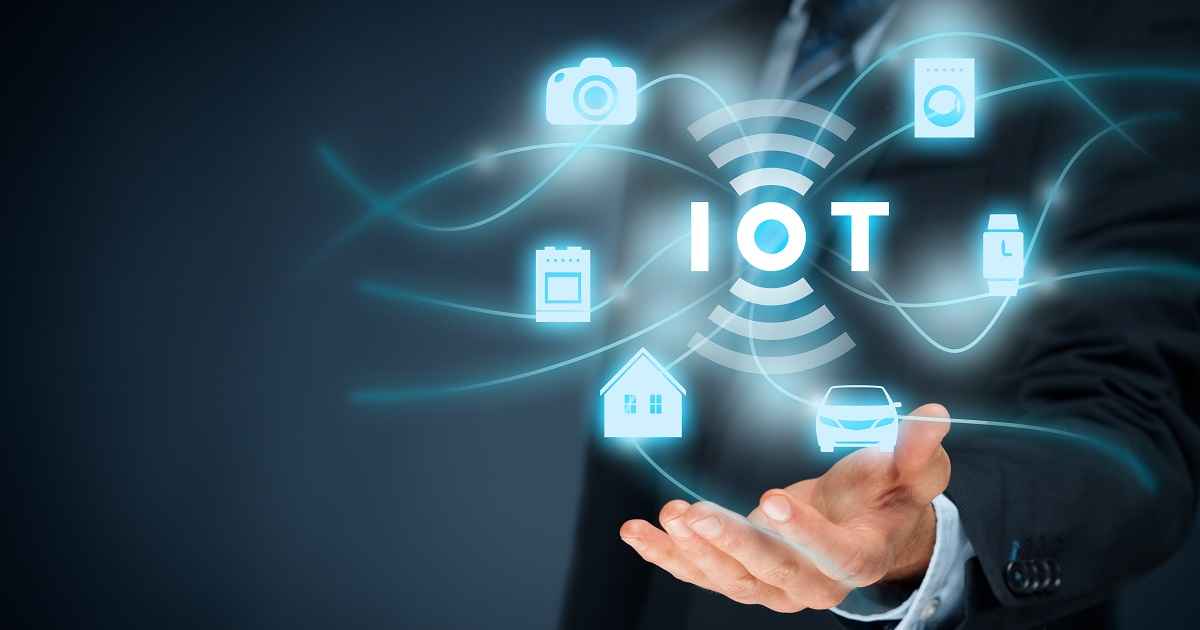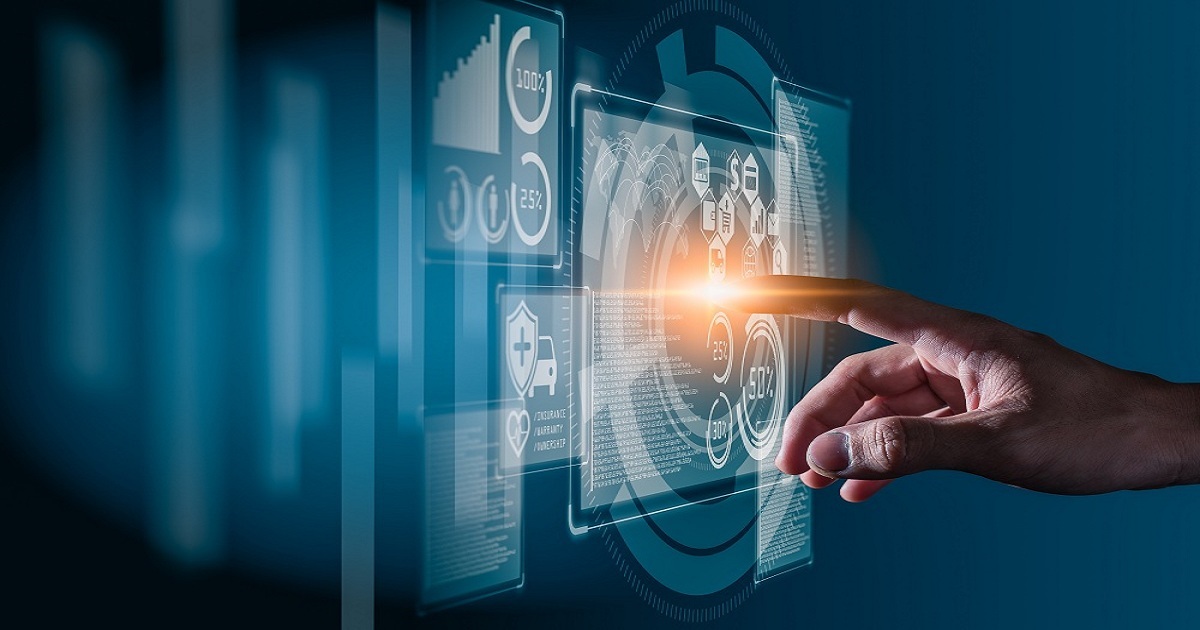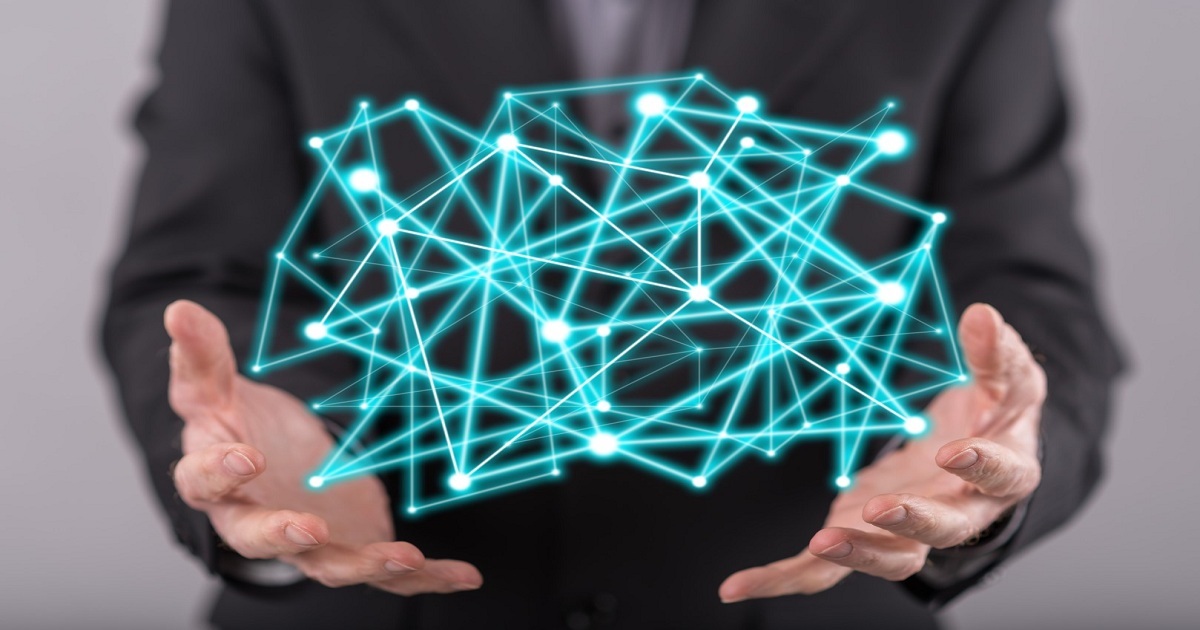
Enterprise Iot
Article | May 11, 2023
Explore the events on IoT security, addressing to the complex cyber security challenges and privacy issues. It caters to a variety of attendees including industrialists, students and enthusiasts.
The significance of IoT security cannot be overstated in today's interconnected business landscape. Safeguarding sensitive data and mitigating risks is paramount, making robust IoT security a non-negotiable imperative for organizations seeking to thrive in the digital age.
From industry professionals seeking to expand their knowledge to builders and buyers in the market, these events provide a comprehensive platform to learn, connect, and discover the possibilities of scaling with IoT. Attendees can connect with buyers, sellers, and innovators, fostering meaningful connections and exploring potential business opportunities. At these industrial IoT conferences 2023 and beyond, attendees can immerse themselves in a vibrant atmosphere of innovation and collaboration.
1. IoT Tech Expo
September 26-27, 2023 | RAI (AMSTERDAM)
The IoT Tech Expo Europe is a prominent event that serves as a platform for exploring the latest innovations, solutions, and strategies in the field of IoT, digital twins, enterprise transformation, IoT security, and edge platforms. It promises two days of top-level content and thought leadership discussions. Industry experts, including keynote speakers and panelists, will share their unparalleled industry knowledge, real-life experiences, and insights through solo presentations, expert panel discussions, and in-depth fireside chats. Some of the key sessions will include panel discussions on staying on track with digital twins, examining their pitfalls across industries, and exploring the incorporation of other technologies like AI, ML, and Blockchain for agile processes. Notable speakers in this domain include Bruno Ávila, i-Team Director - Digital Urban Planning Lab, City of Amsterdam; Ben Lomax Thorpe, Head of Digital Twin, among others. Additionally, the event showcases success stories and case studies from organizations leading the way in digitalization and IoT implementation.
2. International Conference on the Internet of Things
November 7-10, 2023 | Nagoya (Japan)
This event brings together leading researchers, industry experts, and stakeholders in the IoT field. This conference serves as a platform for visionary and groundbreaking research, fostering innovation in various IoT verticals such as smart industry, smart cities, smart health, and smart environment. The 13th International Conference on the Internet of Things (IoT 2023) will include keynote speeches, research presentations, panel discussions, and interactive sessions. It will provide a platform for sharing visionary ideas, ground-breaking research findings, and innovative solutions in the realm of IoT and related fields. Nagoya, the host city for IoT 2023, will offer a captivating setting for the conference. With a focus on visionary research and innovation, the conference provides a platform for knowledge sharing, collaboration, and exploration of IoT advancements in various verticals.
3. 9th Annual IoT Security Foundation Conference
November 7, 2023 | IET (London)
The 9th Annual IoT Security Foundation Conference is a highly regarded event dedicated to IoT cybersecurity. With the increasing prominence of artificial intelligence in various industries, this year's conference will focus on the impact of AI on cybersecurity, exploring its implications for developers and cyber defenders at the forefront of the field. The call for presentations is currently open, inviting submissions on a wide range of IoT security-related themes till July 14th, 2023, with notifications of acceptance to be sent by August 18th, 2023. By participating in the IoTSF 2023 Conference, sponsors and exhibitors gain exposure within the IoT security community and can forge new customer relationships, generate leads, establish partnerships, and strengthen existing customer connections. The conference will cover a range of themes, including business, technical, operational, educational, and policy-related topics. Proposals are invited on these subjects, offering speakers an opportunity to contribute to the diverse interests of conference attendees.
4. ETSI IoT Conference 2023 (ETSI IoT Week 2023)
July 4-6, 2023 | Sophia Antipolis (France)
ETSI, the European Telecommunications Standards Institute, is organizing its annual flagship event, the ETSI IoT Conference. The conference, ' IoT Technologies for Green and Digital Transformation,' is a must-attend event for professionals involved in the Internet of Things, recognizing the significance of standard-enabled technologies for IoT service deployments. It provides a valuable platform for attendees to learn and share experiences related to IoT technologies, services, activities, and requirements, focusing on current and future standardization efforts. The 2023 edition of the conference will feature a combination of keynote speeches, presentations, interactive panels, and IoT demonstrations, creating ample networking opportunities for participants. The event will revolve around three main areas: IoT for the digital and green transformation, IoT technologies, and horizontal IoT standards for various vertical business sectors. The ETSI IoT Conference is particularly relevant for organizations and stakeholders interested in the service and operational aspects of IoT, including industry representatives, SMEs, research and development institutions, academia, decision and policy makers, as well as users of IoT standards such as cities, governments, and societal actors.
5. 4th International Conference on Big Data, Machine Learning and IoT (BMLI 2023)
August 26-27, 2023 | Dubai (UAE)
The 4th International Conference on Big Data, Machine Learning, and IoT serves as a major platform for presenting innovative ideas, developments, research projects, and approaches in the domains of big data, machine learning, and the internet of things. This event includes but is not limited to big data techniques, models, and algorithms; infrastructure and platforms for big data; search and mining in big data; security, privacy, and trust in big data. Authors are invited to submit original papers by July 01, 2023, through the conference's submission system. Additionally, selected outstanding papers will have the opportunity to be considered for publication in renowned journals such as the International Journal of Database Management Systems (IJDMS), the International Journal of Data Mining & Knowledge Management Process (IJDKP), and others. The event will provide an excellent opportunity for researchers, industry professionals, and practitioners to explore the latest advancements, share knowledge, and foster collaborations in the dynamic fields of big data, machine learning, and IoT.
6. 28th Australasian Conference on Information Security and Privacy (ACISP 2023)
July 5-7, 2023 | Brisbane (Australia)
The 28th Australasian Conference on Information Security and Privacy (ACISP 2023) is an event in the field of cybersecurity and privacy, bringing together researchers, practitioners, and industry experts from Australasia and around the world. This conference will serve as a platform to exchange innovative ideas, research findings, and advancements in information security and privacy. ACISP 2023 focuses on addressing the evolving challenges and emerging trends in the field, providing a forum for discussing theoretical and practical aspects of IoT security risks. Participants have the opportunity to present their research papers, engage in enlightening discussions, and network with professionals in the industry. The conference covers a wide range of topics related to information security and privacy, including cryptographic protocols and algorithms, security in emerging technologies, intrusion detection and prevention.
7. The Things Conference
September 21-22, 2023 | Amsterdam (Netherlands)
The Things Conference is dedicated to LoRaWAN, attracting thousands of professionals and enthusiasts worldwide. This highly anticipated gathering will serve as a hub for the entire LoRaWAN ecosystem, offering a unique opportunity to meet key players, gain valuable insights into the IoT industry, and explore the expanding LPWAN market. The event showcases a diverse range of LoRaWAN enabled security IoT devices and gateways at the Wall of Fame, where participants can interact with and experience first-hand the latest products from over 100 partners. The conference program features an impressive line-up of speakers from prominent companies such as Blues, Miromico, ELSYS, TagoIO, Edge Impulse, and more. Attendees can benefit from engaging keynotes, insightful workshops, interactive side sessions, case studies, and value-driven stories. These sessions cover various aspects of LoRaWAN, offering attendees valuable knowledge and practical guidance. One of the highlights of The Things Conference is The Things Certifications, which allow participants to showcase their expertise.
Final Thoughts
The conferences help industry experts, IT professionals, engineers, and decision-makers to gain insights and in-depth knowledge. Attendees can expect a comprehensive program consisting of keynote presentations, panel discussions, case studies, and interactive workshops. The above events will cover various topics, concerning the IoT security. Participating in these will provide networking opportunities, allowing attendees to connect with peers, share experiences, and establish valuable business connections. Leaders can stay updated with the evolving data center landscape and gain a competitive edge in their evolving technologies, to provide protection against threats.
Read More

IoT Security
Article | June 28, 2023
5G trends are shaping the future of various technologies, from the Internet of Things to virtual reality. Learn more about the top trends in 5G to stay ahead of the competition in this sector.
Contents
1 The Current State of IoT Data Security
2 Top Trends in IoT Data Security in 2023
2.1 Emergence of AI-powered Security Solutions
2.2 Potential of Blockchain Technology
2.3 Growing Use of Zero-trust Security Frameworks
2.4 Greater Emphasis on End-to-end Encryption
2.5 Industry and Government Collaboration
3 Conclusion
As the Internet of Things (IoT) continues to rapidly expand, data security has become a critical concern for businesses and consumers alike. With recent high-profile breaches and cyberattacks, the latest trends in IoT data security focus on implementing stronger encryption and authentication protocols, as well as enhancing device-level security measures to protect sensitive data from potential threats.
1 The Current State of IoT Data Security
The growing adoption of IoT has led to a digital transformation in the way businesses operate. IoT technology has enabled organizations to collect and analyze vast amounts of data in real-time, allowing for improved decision-making, increased operational efficiency, and enhanced customer experiences. Despite these benefits, organizations are currently facing significant IoT data security challenges that must be addressed to fully realize the potential of this technology.
Companies recognize unauthorized access (43%), data privacy (38%), and data integrity (31%) as top IoT security challenges.
(Source: Statista)
Businesses are actively addressing these security challenges by investing in IoT and data security solutions. The global market for IoT data security continues to grow, and companies are increasingly investing in strategies for data security in the IoT. To secure access to mission-critical connected devices and sensitive data, it is imperative for businesses to keep track of IoT trends in data security.
2 Top Trends in IoT Data Security in 2023
2.1 Emergence of AI-powered Security Solutions
AI-powered security systems can rapidly detect and respond to attacks, reducing the likelihood of significant damage to IoT devices or networks. In particular, its ability to analyze vast amounts of data in real-time and identify anomalies or potential security threats makes AI a vital component of an IoT data security strategy.
Detecting an IoT security breach in progress is possible with AI security systems, which identifies unusual behavior by analyzing data patterns from IoT devices. AI can also be used to diagnose potential vulnerabilities in IoT devices and networks, allowing organizations to take proactive measures to address them before they are exploited.
The pattern recognition capabilities of AI also help secure IoT technology through predictive analytics. By analyzing past data breaches and attacks, AI systems detect potential cyberattacks and develop predictive models to detect and respond to them proactively.
AI-driven security systems have the potential to streamline incident response by lessening the load on cybersecurity teams and reducing response time. The ability to adapt and learn from a previous cyberattack allows machine learning (ML) algorithms to create novel strategies that prevent similar attacks in the future.
AI represents a significant development in addressing IoT security concerns since it provides sophisticated capabilities to protect IoT networks and devices that conventional security measures cannot provide. AI-enabled security systems deliver immediate identification, reaction, and deterrence of possible threats, which is why they will be critical in ensuring data security in the IoT.
2.2 Potential of Blockchain Technology
Blockchain's unique features, such as decentralization, immutability, and cryptographic security, provide a robust framework for secure communication and data sharing among IoT devices. By leveraging blockchain technology, businesses can ensure their IoT data's integrity, confidentiality, and authenticity.
One of the key advantages of using blockchain for IoT data security is its decentralized nature. Blockchain networks are distributed and run on a peer-to-peer basis, making it difficult for attackers to compromise the network. This also makes it an ideal solution for recording and securing data from multiple access points, such as IIoT systems.
Additionally, blockchain networks are designed to be immutable, making them an ideal solution for IoT data security and providing a tamper-proof and transparent ledger for recording data flow. This can help enterprises identify and mitigate security threats more quickly and efficiently, reducing the risk of cybersecurity incidents. A research paper published in Wireless Networks highlights the advantage of using a Blowfish Blockchain Model to enable IoT data sharing security, particularly for multimedia content.
Blockchain technology is a promising solution for securing IoT data. Its unique features, including decentralization, immutability, and cryptographic security, make it an ideal candidate for many IoT use cases. This technology can potentially transform data security for IoT devices by offering the IoT sector the solution it requires.
2.3 Growing Use of Zero-trust Security Frameworks
Zero-trust frameworks ensure that only authorized devices and users can access sensitive data and systems, protecting against insider threats and external attacks. This is especially important in IoT environments, where devices may lack traditional security measures like firewalls and antivirus software.
Device identity management is a critical component of zero-trust security for IoT data. Only recognized devices are allowed access to a network or data by leveraging processes and technologies that authenticate device identity. With Zero Trust, any connected device must be authorized before accessing any resources, including data.
By closely monitoring and managing access, businesses can maintain the security of the IoT. This protects against threats that exploit weak device identity management. Overall, zero-trust security frameworks are essential for safeguarding IoT data from malicious actors and protecting the integrity of IoT ecosystems.
2.4 Greater Emphasis on End-to-end Encryption
IoT poses a threat to data security when users do not take proper measures to protect the data generated. End-to-end encryption provides a strong layer of protection against unauthorized access, interception, and other cyber threats by encrypting data at the source, during transmission, and at rest.
IoT devices collect and process a wide range of sensitive data, from personal information and financial data to critical infrastructure and medical records. This data is often transmitted over networks and shared with cloud services, and the risk of cyberattacks during transmission cannot be ignored.
End-to-end encryption can provide a strong layer of protection by encrypting data at the source, working to improve the limited data security of the IoT. As the use of IoT devices continues to grow, implementing end-to-end encryption will become increasingly important for ensuring the security and privacy of sensitive IoT data.
2.5 Industry and Government Collaboration
In late 2021, the UK and Singapore governments became the first to announce obligatory security requirements for specific categories of IoT devices. Due to IoT data security risks, other countries have also defined guidelines, best practices, certifications, or labeling efforts for IoT devices. However, adoption among IoT device makers and vendors has been slow.
The National Institute of Standards and Technology (NIST) has been working on establishing cybersecurity guidelines for IoT devices. In June 2022, NIST incorporated consumer IoT cybersecurity criteria into its family of IoT cybersecurity guidance. NIST is also working with the IoT industry to design, standardize, and test solutions for IoT security controls.
By discussing IoT device security concepts and establishing guidelines in collaboration, the industry and the government can foster adoption of general methods to protect IoT devices from cybersecurity breaches. Such cooperation can be crucial in ensuring that IoT devices are secure from cyber threats and that IoT device makers and vendors adopt best practices for IoT device security.
3 Conclusion
The trends in IoT data security showcase several proactive measures that can be taken to protect sensitive data in a rapidly evolving technological landscape. In addition, organizations are moving towards a more comprehensive approach to IoT data security with the emergence of AI-powered security solutions, blockchain technology, and the shift to zero-trust security frameworks.
As IoT devices continue to proliferate, organizations must prioritize security and data protection to prevent data breaches and cyberattacks. This emphasizes the need for collaboration between industry and government to strengthen security measures and improve IoT device security by building with a ‘secure by design’ approach.
Read More

IoT Security
Article | June 27, 2023
The Internet of Things (IoT) and Industrial Internet of Things (IIoT) markets have experienced explosive growth as a result of the digital industrial revolution that followed the COVID-19 epidemic. To fully benefit, however, organizations have had to handle security concerns associated with these revolutionary technologies. Therefore, finding the correct security strategy is crucial for any organization because of the increasing dependency on IoT and IIoT to manage essential business systems.
IoT and IIoT can be implemented quickly, but they come with inherent vulnerabilities. This risks businesses from cyberthreats such as device theft, spoofing, denial of service attacks, and data breaches or siphoning. Attacks of this nature adversely affect an organization's operations, finances, safety, and reputation.
Many IoT and IIoT devices have passwords hard-coded into their firmware, making it challenging to patch or update security, which is a significant problem. Even when security is deployed on a device, it can usually be bypassed by taking advantage of a variety of known weaknesses. As a result, IT teams may find it challenging to identify an occurrence when IoT or IIoT devices are compromised before affecting systems and data.
Mitigating IoT and IIoT Security Risks
Separate IIoT and wireless devices from the SCADA or ICS network. Micro-segmentation allows only authorized device connectivity in certain circumstances.
Control network access by monitoring what connects and validating each device's security.
Demand visibility across all enterprise security networks and devices. This should be centralized so all devices, networks, risks, traffic, and policies can be handled in real-time across production and IT environments.
Use an intrusion protection system (IPS) to identify threats and patch IoT and IIoT devices virtually. Counter unexpected attacks with active protection and deception techniques.
It's crucial to check that security solutions can grow automatically to meet business requirements before using them. This entails responding to network changes, foreseeing risks and controlling them proactively, and offering real-time threat intelligence.
Read More

Enterprise Iot
Article | June 28, 2022
Nothing is more innovative or sophisticated than the products being made by the wearables industry in the "smart" era. Individuals track, analyze, monitor, and transmit personal data using these tangible wearable gadgets. Moreover, the adaptable wearable technology is opening up new horizons with business-focused smartphone apps. However, it is still in its early stages, and according to recent developments in this field, the major players in wearable technology are concentrating on developing products with a focus on business applications.
These intelligent Internet of Things (IoT) devices are now widely employed in a variety of businesses and help detect biometric data such as heart rate and sleep habits, among others. In the coming ten years, wearable IoT technology or devices ought to become an integral part of every individual’s daily life.
Businesses around the world are incorporating the newest technologies into their functioning and are looking at digitally altering their impact in the market. With the majority of people already accustomed to using smartphones, they are now also getting familiar with utilizing wearable technology, such as smartwatches, jewelry, and fitness bands. Therefore, the demand for applications is increasing along with technology as we become more technologically adept.
Rising Wearable Industries
Health and Fitness Wearables
The health, fitness, and fashion industries are closely related to any wearable technology or device. People are now frequently using smartwatches to monitor their heart rate and the number of steps they take when walking or running, which has boosted the industries with this technology. IoT devices include medical sensors to track progress in terms of health. It is possible to determine how healthy a person's lifestyle is by gathering accurate health statistics from these devices. Additionally, it monitors sleeping patterns, enhancing your overall quest for wellness.
Gaming Wearables
Gaming is a significant new market for wearable technology and one which is booming. The most prevalent category of wearables in the market is virtual reality (VR) headsets. With VR devices like the Oculus Rift or Playstation VR, players are immediately immersed in otherworldly experiences. Several kinds of breathtaking experiences are now accessible to players everywhere, thanks to VR wearables.
Connected Cars
Automobiles are steadily gaining traction among IoT devices, but they are still a small market (just 0.05 percent of all connected devices are cars), and Ford and Tesla are vying for the top spot. Ford has dominated the connected car market, with Subaru being the only other manufacturer to see any appreciable growth in new connections since July 2020. In contrast, other producers are fighting for a sizable market share as the potential to grow this segment is highly exponential.
Conclusion
Today, wearable technology is planned, developed, distributed, and used in a variety of consumer and corporate markets. The ways in which these markets overlap and influence one another are constantly changing. IoT will significantly change how businesses engage with customers, streamline their operations, and contribute to the creation of a system that relies on such data.
Read More